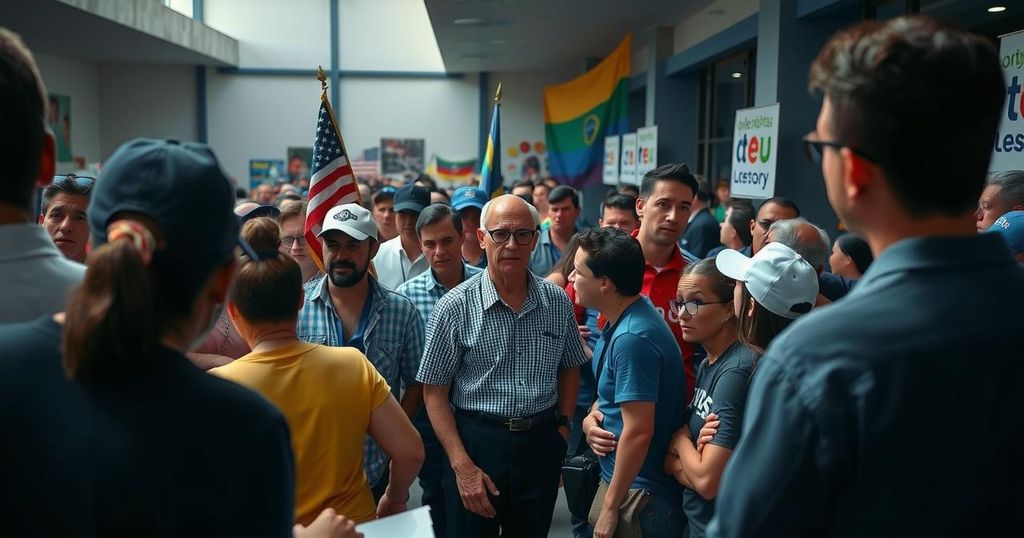Uruguay’s presidential runoff on November 24 features a tight race between centrist candidates Yamandu Orsi and Alvaro Delgado. Voter decisions from the first round, particularly from fringe candidates like Gustavo Salle, will likely determine the outcome. Despite improving economic conditions, issues like inequality and crime persist, highlighting the fluid dynamics of the electorate as analysts consider the importance of voter mobilization.
Uruguayans are set to vote between two centrist candidates in a tightly contested presidential runoff on November 24. With only 25,000 votes separating opposition center-left mayor Yamandu Orsi and conservative ruling coalition candidate Alvaro Delgado, the decisions of voters who supported fringe candidates, such as anti-vax activist Gustavo Salle, could prove decisive. The first round of elections revealed a notable trend: anti-establishment candidates garnered unexpected support, highlighting voter discontent with mainstream options.
The current political landscape in Uruguay contrasts with global trends as the nation benefits from a popular president and improving economic indicators. However, pervasive issues including high living costs, inequality, and crime continue to impact public sentiment, prompting analysts to suggest that there is not a strong desire for political upheaval. With both candidates attempting to court the roughly 8% of voters who chose smaller parties in the first round, the lack of fresh pledges in the final weeks may hinder their efforts to attract these critical voters.
Gustavo Salle, who has encouraged a protest vote against the establishment, emphasized that he would not instruct his followers on how to vote. His assessment leaned toward supporting Orsi potentially due to his progressive policies. The first-round outcomes showed Orsi leading with 43.9% of the vote against Delgado’s 26.8%, yet both face challenges in garnering additional support from abstainers or those who spoil their ballots. Analysts suggest that Orsi’s coalition must strive to appeal to swing voters to secure a victory in this keenly contested election, as any increase in abstentions could favor Delgado’s center-right coalition.
As election day approaches, the focus on mobilizing voters from fringe parties emerges as a pivotal factor that could sway the outcome, highlighting the fluid nature of voter allegiance amid a backdrop of economic improvement and persistent societal challenges.
The article discusses Uruguay’s unique political context during the upcoming presidential runoff election on November 24, 2024. It underscores the significance of voting patterns from the first round where fringe candidates like Gustavo Salle attracted notable support. With the nation experiencing economic improvement, the relevance of these smaller parties’ voters may determine the likelihood of a shift in political power in an election characterized by closely aligned centrist positions. Analysts emphasize the importance of voter mobilization amidst enduring societal issues, as the election reflects a nuanced landscape distinct from global polarization.
In summary, the upcoming presidential runoff election in Uruguay could be significantly influenced by the voters who supported fringe candidates in the earlier round. As the tight race continues, the central challenge for the leading candidates is to engage this crucial demographic while addressing the prevailing socioeconomic issues that have characterized the nation’s political climate. As the election date approaches, the outcome remains contingent upon voter turnout and allegiance, with implications for future governance in Uruguay.
Original Source: www.usnews.com






